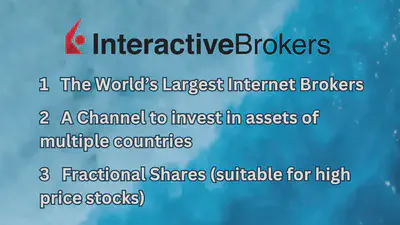Mastering the Art of Leadership: 11 Essential Qualities That Propel Success

Table of Contents
the 11 Major Attributes of Leadership
The following are important factors of leadership:
1. UNWAVERING COURAGE

Unwavering courage based upon knowledge of self, and of one’s occupation. No follower wishes to be dominated by a leader who lacks self-confidence and courage. No intelligent follower will be dominated by such a leader very long.
A leader will have the courage to take the first action proactively.
Courageous leaders are resilient in the face of failure or setbacks. They learn from their mistakes, adapt, and continue to lead with determination, inspiring others to do the same.

A real example of a great leader with unwavering courage is Nelson Mandela, the former President of South Africa and a key figure in the struggle against apartheid. Mandela spent 27 years in prison for his anti-apartheid activism. During his imprisonment, he remained steadfast in his beliefs, refusing offers of release in exchange for renouncing his political beliefs.
Upon his release, Mandela displayed immense courage by advocating for reconciliation and forgiveness instead of revenge, leading the country toward a peaceful transition to majority rule. His ability to face adversity, maintain his principles, and work towards a peaceful resolution to a deeply entrenched societal problem showcases unwavering courage in its truest form.
Mandela’s courage not only transformed South Africa but also inspired the world, making him a symbol of leadership and resilience.
Welcome to Sunfortzone, our goal is to help value investors understand more about their investments and become a better person.
If you want to grow on the path of value investing, please subscribe to our Youtube channel to get more valuable contents in the future.
Wall streets make money on activities, we, as value investors, make money on inactivities.
Here, we introduce a high-quality US stock brokerage called Interactive Brokers, which we primarily use as a channel for investing in US stocks.
Interactive Brokers has three main advantages. First, it was established in 1978 and is the world’s largest online brokerage. Its ticker symbol on the US Nasdaq stock exchange is IBKR. It is listed on the Nasdaq with a market capitalization of approximately $8.7 billion USD. If you check its profitability on our website, go to the Stock Analysis page at Sunfortzone.com, search for IBKR, you can see that Interactive Brokers’ quarterly net profits are positive and in a growing trend, indicating very low risk of bankruptcy.
Second, Interactive Brokers allows investment in a wider variety of assets. As a global brokerage, Interactive Brokers enables the purchase of stocks worldwide, including countries such as the United States, China, Japan, Germany, France, Canada, Australia, Italy, and more. Regarding ETFs, Interactive Brokers offers a diverse selection, such as TQQQ, a triple-leveraged Nasdaq ETF.
Third, Interactive Brokers allows fractional share purchases, meaning you can buy units smaller than one whole share. This is suitable for high-priced stocks like Berkshire Hathaway, which trades at around $490,000 per share. With Interactive Brokers, you can invest a specific amount of money without having to buy a whole share. For example, you can set to buy $100 worth of Berkshire Hathaway shares. The drawback of fractional shares is that they do not come with voting rights, but you can still receive dividends from fractional shares.
Here at Sunfortzone, we provide an exclusive account opening offer link for Interactive Brokers. For every $100 deposited, you can receive $1 worth of IBKR stock, with a maximum value of $1,000 IBKR stock!
We strongly recommend our friends who are serious about their investments to open an account, deposit over $10,000 USD within 30 days, and invest in good, undervalued stocks at the right time, holding them for at least a year.
As Warren Buffett said, one crucial aspect of investing is to start early. Buffett bought his first stock at around the age of ten and continuously accumulated wealth like a rolling snowball, leading to his current achievements, emphasizing the importance of continuous learning and growth.
2. SELF-CONTROL

The man who cannot control themselves, can never control others. Self-control sets a mighty example for one’s followers, which the more intelligent will emulate.
Leaders often face stressful and challenging situations. Self-control allows them to maintain emotional stability, think clearly, and make rational decisions under pressure.
Leaders need to handle conflicts and disagreements within their team or organization. Having self-control enables them to remain calm and composed during conflicts, facilitating effective resolution without escalating tensions.

A real example of a great leader with exceptional self-control is Mahatma Gandhi, the leader of the Indian independence movement against British rule. Gandhi was known for his unwavering commitment to nonviolent resistance. Despite facing immense opposition, violence, and personal attacks, he maintained remarkable self-control.
Gandhi’s ability to remain peaceful and composed, even in the face of extreme provocation, inspired millions of people to join the freedom movement. His self-control was a driving force behind the success of the Indian independence movement, demonstrating the power of peaceful resistance and setting an example for leaders around the world.
3. A KEEN SENSE OF JUSTICE

Without a sense of fairness and justice, no leader can command and retain the respect of his followers.
A leader with a strong sense of justice ensures fairness in decision-making processes. This fairness fosters trust and respect among team members, creating a positive and cohesive work environment.
Leaders with a sense of justice often extend their concern for fairness and equality beyond their organization, working towards positive social change and advocating for the rights of others.

A real example of a great leader with a keen sense of justice is Martin Luther King Jr., a prominent leader in the American civil rights movement during the 1950s and 1960s. King was a staunch advocate for racial equality, nonviolence, and social justice.
He fought against racial segregation and discrimination through nonviolent protest and civil disobedience. King’s commitment to justice was evident in his speeches, such as the famous “I Have a Dream” speech, where he articulated his vision for a future where people are judged by their character, not their skin color. His peaceful and just approach to the civil rights movement inspired millions and played a significant role in bringing about legislative changes and societal shifts toward greater racial equality and justice in the United States.
4. DEFINITENESS OF DECISION

The man who wavers in his decisions, shows that he is not sure of himself. He cannot lead others successfully.
A leader with definiteness of decision provides clear direction for their team or organization. Decisiveness eliminates confusion and helps team members understand what needs to be done, fostering a sense of purpose and focus.
In fast-paced environments, quick and decisive decision-making is essential for resolving problems and challenges promptly. Leaders who can make decisions decisively can prevent issues from escalating and find solutions efficiently.

A real example of a great leader with definiteness of decision is Steve Jobs, co-founder of Apple Inc. Jobs was known for his unwavering vision and decisiveness. He had a clear and innovative vision for Apple products, and he made bold decisions to bring that vision to life.
One notable example of his definiteness of decision was the development and launch of the iPhone in 2007. At the time, the mobile phone market was dominated by traditional keypad phones. Jobs made the decisive move to introduce a touchscreen smartphone, revolutionizing the entire industry. His clear decision and conviction in the iPhone’s design and functionality not only transformed Apple but also changed the way people interact with technology globally. Jobs’ definiteness of decision played a pivotal role in Apple’s success and solidified his legacy as a visionary leader.
5. DEFINITENESS OF PLANS

The successful leader must plan his work, and work his plan. A leader who moves by guesswork, without practical, definite plans, is comparable to a ship without a rudder. Sooner or later he will land on the rocks.
Clear and definite plans provide a roadmap for achieving goals. Leaders need to set specific, measurable, achievable, relevant, and time-bound (SMART) goals and create definitive plans to accomplish them.
Definite plans help in efficient allocation of resources, including time, money, and manpower. A well-defined plan ensures that resources are utilized effectively to achieve the desired outcomes.

A real example of a great leader with definiteness of plans is Elon Musk, the CEO of SpaceX and Tesla, Inc. Musk is known for his ambitious and well-defined plans for the future of space exploration and sustainable energy.
For instance, with SpaceX, Musk set a definite plan to reduce space transportation costs and make space travel more accessible. He outlined clear objectives, including the development of reusable rocket technology, which led to the successful landing and reuse of SpaceX’s Falcon 9 rockets. This definite plan not only revolutionized the aerospace industry but also paved the way for future missions to Mars and beyond.
Similarly, at Tesla, Musk established a clear roadmap for electric vehicles and renewable energy solutions. His definiteness of plans includes expanding Tesla’s product line, developing advanced battery technologies, and building Gigafactories worldwide to scale up production. These well-defined plans have contributed to Tesla’s growth as a leader in the electric vehicle industry. Musk’s ability to set clear, ambitious goals and create definite plans to achieve them showcases the importance of definiteness of plans in effective leadership.
6. THE HABIT OF DOING MORE THAN PAID FOR

One of the penalties of leadership is the necessity of willingness, upon the part of the leader, to do more than he requires of his followers.
Leaders who consistently go above and beyond set an example for their team. When team members see their leader putting in extra effort, they are inspired to do the same, fostering a culture of dedication and excellence.
Leaders who go the extra mile contribute significantly to the organization’s success. Their additional efforts often result in increased productivity, improved quality of work, and enhanced customer satisfaction, creating tangible value for the organization.

A real example of a great leader with the habit of doing more than paid for is Oprah Winfrey, media mogul, television host, and philanthropist. Throughout her career, Oprah has consistently gone above and beyond her job description, leveraging her influence and resources to make a positive impact on the lives of others.
One notable example is her initiative to establish the Oprah Winfrey Leadership Academy for Girls in South Africa. This school provides quality education, leadership development, and support to academically talented and disadvantaged girls. Oprah’s dedication to empowering these girls and her commitment to their education goes far beyond what is typically expected of a media personality. Her philanthropic efforts, combined with her influential platform, exemplify the habit of doing more than paid for, making her a remarkable leader and humanitarian.
7. A PLEASING PERSONALITY

No slovenly, careless person can become a successful leader. Leadership calls for respect. Followers will not respect a leader who does not grade high on all of the factors of a Pleasing Personality.
Leaders with a pleasing personality can communicate more effectively. They can convey their ideas clearly, listen actively, and inspire others through their words and demeanor.
A leader with a warm and approachable personality can build strong and positive relationships with team members, colleagues, and stakeholders. This fosters a sense of trust, cooperation, and loyalty within the organization.
Leaders with a pleasing personality are often skilled at handling conflicts diplomatically. They can mediate disputes, calm tense situations, and find resolutions that satisfy all parties involved.
A leader’s positive and pleasant demeanor can be motivating for others. People are more likely to be inspired and motivated by a leader who exudes positivity and enthusiasm.
Leaders with a pleasing personality contribute to a positive work environment. Their optimism and friendly attitude can uplift the morale of the team and make the workplace a more enjoyable and productive space.

A real example of a great leader with a pleasing personality is Warren Buffett, the renowned investor, business tycoon, and philanthropist. Despite his immense success and wealth, Buffett is known for his down-to-earth and approachable personality.
Buffett’s humility, simplicity, and wit have endeared him to people from all walks of life. He is often seen as approachable and genuine, willing to share his knowledge and insights with others. His pleasant personality has not only helped him build strong relationships with business partners and investors but has also made him a respected and beloved figure globally. Buffett’s ability to connect with people, coupled with his exceptional business acumen, showcases the power of a pleasing personality in effective leadership.
People do learn and have fun so much in his annual meetings due to his pleasing personality.
8. SYMPATHY AND UNDERSTANDING

The successful leader must be in sympathy with his followers. Moreover, he must understand them and their problems.
Sympathy and understanding demonstrate empathy, allowing leaders to connect with their team members on a deeper level. Understanding the concerns, challenges, and emotions of others fosters a supportive and compassionate work environment.
Leaders who are sympathetic and understanding can navigate conflicts more effectively. By empathizing with the perspectives of all parties involved, they can find resolutions that are fair and satisfactory, promoting harmony within the team.
Showing understanding and sympathy can motivate team members. When employees feel heard and valued, they are more likely to be engaged, motivated, and dedicated to their work and the organization.
Leaders who exhibit sympathy and understanding build trust with their team. Team members are more likely to trust a leader who listens, understands their concerns, and demonstrates genuine care for their well-being.

A real example of a great leader with these qualities is Angela Merkel, the former Chancellor of Germany. Merkel was known for her pragmatic and empathetic leadership style. During her tenure, she demonstrated understanding and sympathy in various situations, including the European debt crisis and the refugee crisis.
In response to the refugee crisis, Merkel displayed empathy by welcoming refugees into Germany, understanding the humanitarian aspects of the situation. While her decision was met with challenges and criticisms, her sympathetic approach highlighted her understanding of the human suffering involved and showcased her willingness to address the issue with compassion and humanity.
Merkel’s ability to exhibit sympathy and understanding, especially during challenging times, contributed to her reputation as a respected leader not only in Germany but also on the global stage.
9. MASTERY OF DETAIL

Successful leadership calls for mastery of details of the leader’s position.
Leaders need a deep understanding of the details to make well-informed decisions. Mastery of detail allows leaders to analyze situations thoroughly, weigh options, and choose the most effective course of action.
Leaders must be able to explain complex ideas and strategies to their team members. A mastery of detail ensures that leaders can communicate intricate concepts clearly and accurately, avoiding misunderstandings.
Attention to detail is crucial when solving problems. Leaders who understand the intricacies of a problem can identify root causes and develop comprehensive solutions, leading to more effective problem-solving outcomes.
For leaders overseeing projects or products, attention to detail is vital to maintaining high quality. Leaders who master the details can set and enforce high-quality standards, ensuring that the final output meets or exceeds expectations.
Team members and colleagues often respect leaders who demonstrate a deep understanding of their work. Mastery of detail earns the respect of peers and subordinates, establishing the leader’s credibility and expertise.

A real example of a great leader with mastery of detail is Sheryl Sandberg, the Chief Operating Officer of Facebook (now Meta Platforms, Inc.). Sandberg is known for her attention to detail and strategic acumen. During her time at Facebook, she played a key role in the company’s growth and success.
One notable example of her mastery of detail was her focus on monetizing Facebook’s advertising platform. Sandberg meticulously analyzed user data and advertising trends, allowing Facebook to tailor its advertising services effectively. Under her leadership, Facebook’s advertising revenue grew significantly, showcasing her ability to delve into the details and leverage them for strategic decision-making.
Additionally, Sandberg’s book “Lean In” demonstrates her mastery of detail in addressing gender equality issues in the workplace. The book is rich in research and detailed analysis, reflecting her deep understanding of the challenges women face in the professional world. Sandberg’s attention to detail has not only contributed to her personal success but has also influenced the way organizations approach advertising and diversity initiatives.
10. WILLINGNESS TO ASSUME FULL RESPONSIBILITY

The successful leader must be willing to assume responsibility for the mistakes and the shortcomings of his followers. If he tries to shift this responsibility, he will not remain the leader. If one of his followers makes a mistake, and shows himself incompetent, the leader must consider that it is he who failed.
Leaders are accountable for the outcomes of their decisions and actions. Taking full responsibility means acknowledging both successes and failures, fostering a culture of accountability within the team or organization.
Leaders who accept responsibility, especially in challenging situations, build trust and credibility. Team members and stakeholders have confidence in leaders who are willing to take ownership of their decisions and their consequences.
When leaders assume responsibility, they are more motivated to find solutions to problems. Rather than blaming others or external factors, they focus on identifying and implementing effective solutions, driving positive change.
Accepting responsibility for failures provides an opportunity for learning and growth. Leaders can analyze what went wrong, learn from mistakes, and apply these lessons to future situations, improving their decision-making skills.
Leaders who demonstrate a willingness to take full responsibility inspire their team members. This behavior sets an example and encourages others to be accountable for their actions, leading to a more responsible and motivated workforce.

A real example of a great leader with a strong willingness to assume full responsibility is Admiral James Stockdale, a highly decorated United States Navy officer and a prisoner of war during the Vietnam War. Stockdale was the highest-ranking naval officer held as a prisoner of war in Vietnam.
During his captivity, Stockdale assumed full responsibility for the well-being of his fellow prisoners. He organized a system of communication and support among the prisoners, despite facing severe torture and isolation himself. He also took responsibility for their collective resistance, ensuring that the prisoners did not provide military information to the enemy.
Stockdale’s leadership and willingness to assume full responsibility under extremely challenging circumstances inspired his fellow prisoners and kept their spirits high. His actions demonstrated extraordinary resilience, accountability, and selflessness, making him a remarkable example of a leader who embraced responsibility even in the face of adversity.
11. COOPERATION

The successful leader must understand, and apply the principle of cooperative effort and be able to induce his followers to do the same. Leadership calls for POWER, and power calls for COOPERATION.
Leaders cannot achieve organizational goals alone. Cooperation fosters teamwork, allowing individuals with diverse skills and perspectives to work together effectively, leveraging their collective strengths.
Cooperation often leads to synergy, where the combined efforts of a team yield results greater than the sum of individual efforts. Leaders who encourage cooperation can harness this synergy for innovative problem-solving and enhanced productivity.

This makes me think of the Dot Collector system from Ray Darlio, the principles behind the Success of Bridge Water, which is one of the Biggest Hedge Fund in the World. This system encourages team members to cooperate and give valuable feedback to the team in order to minimize fatal mistakes.
The Dot Collector is a real-time feedback and polling tool developed by Ray Dalio, the founder and co-chief investment officer of Bridgewater Associates. It is used by Bridgewater employees to give and receive feedback on each other’s performance during meetings and presentations.
The Dot Collector is based on the principle of radical transparency, which Dalio believes is essential for building a high-performing organization. By giving and receiving feedback in real time, employees are able to identify and correct their mistakes quickly, and to learn from each other’s successes.
The Dot Collector is also used to collect data on employee performance and behavior. This data is then used to identify areas where employees need improvement, and to match employees with the right jobs and responsibilities.
Dalio has said that he uses the Dot Collector because he believes that it is the best way to create a culture of continuous learning and improvement. He has also said that the Dot Collector has helped Bridgewater become one of the most successful hedge funds in the world.
Here are some of the benefits of using the Dot Collector:
- It provides immediate feedback, which can help employees improve their performance quickly.
- It allows everyone in the organization to give feedback, regardless of their position.
- It creates a culture of radical transparency, which can help build trust and collaboration.
- It collects data on employee performance and behavior, which can be used to identify areas for improvement and to make better decisions about staffing and promotions.
Overall, the Dot Collector is a powerful tool that can be used to improve individual and collective performance. It is based on the principle of radical transparency, which Dalio believes is essential for building a high-performing organization.
Thanks for spending your valuable time with us! If you like our content, please like and subscribe to our Youtube channel to get more valuable content. Furthermore, please visit our website sunfortzone.com for more data-driven insights, and join our Discord Server to discuss with other investors.
If you’ve learned something from our productions, please check out the Interactive Brokers website and click the exclusive link down below to open an account for free. Your actions means a world to us!
What’s your idea? please leave a comment below! We would like to learn something from you as well!
